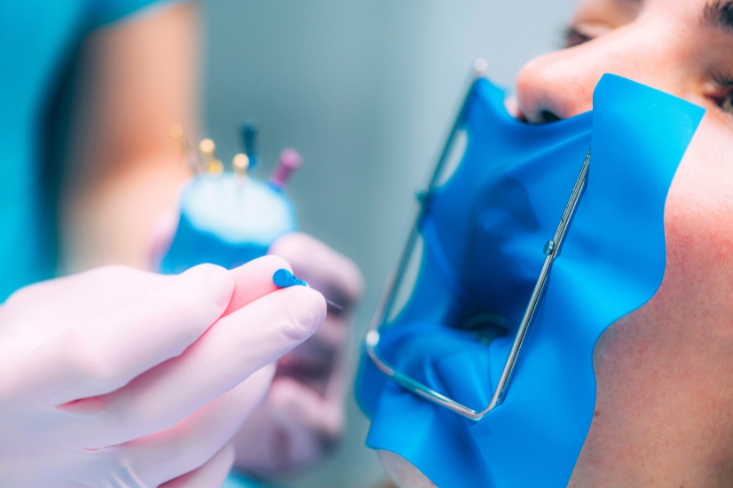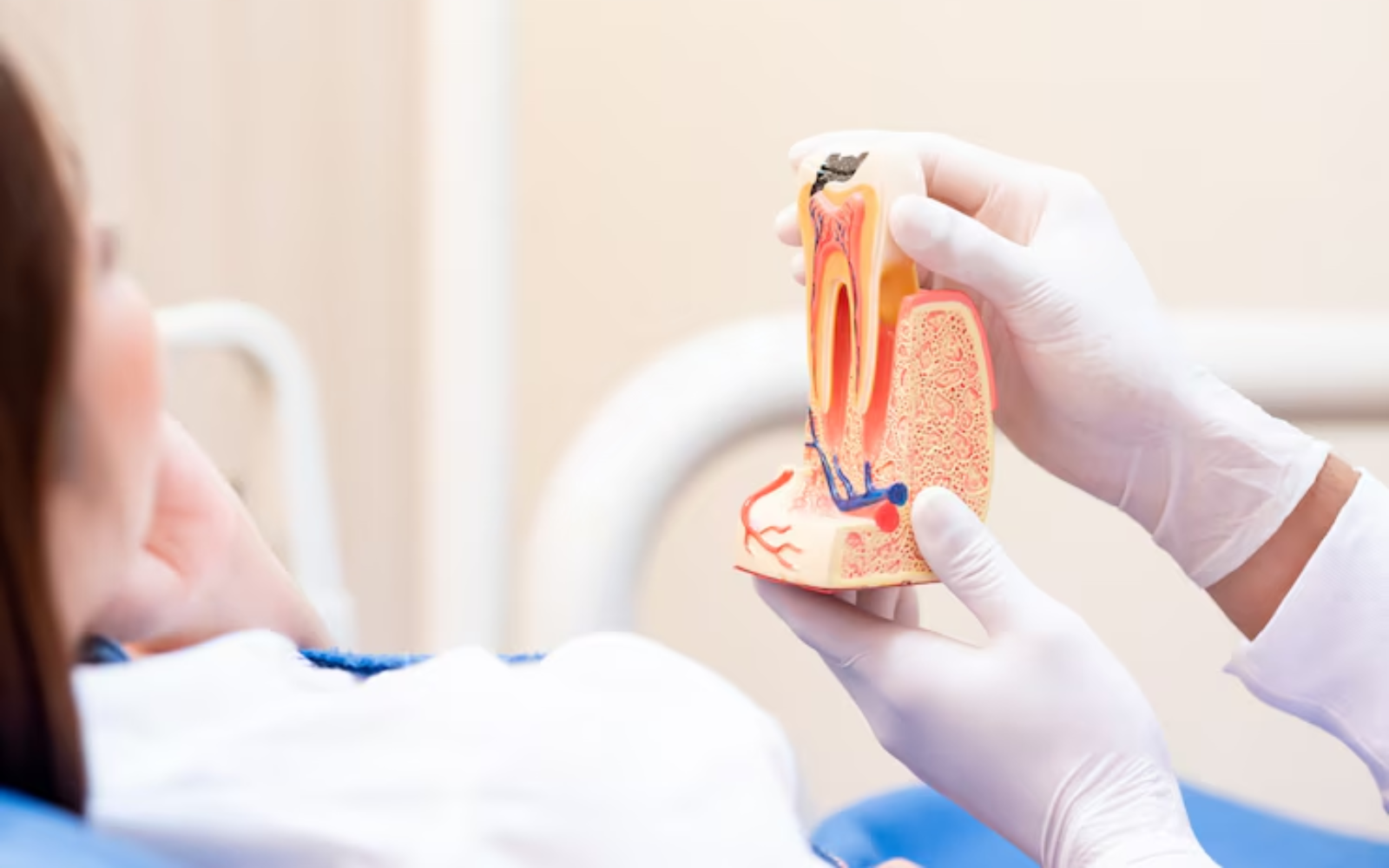345B Latoria Blvd #202, Victoria, BC, V9C 0S9

Undergoing a root canal treatment can be daunting, but it is often necessary to save a tooth and relieve pain caused by infection or decay. After the procedure, it’s common to experience some discomfort or pain as the body heals.
This guide aims to provide you effective methods to relieve pain after a root canal, ensuring a smoother recovery process.
Root Canal Treatment
Before diving into pain relief strategies, it’s essential to understand what root canal therapy entails. The procedure involves removing the infected or damaged pulp from the inside of a tooth, cleaning the area, and sealing it to prevent further infection. While root canals are designed to alleviate pain, the treatment itself can lead to some post-procedural discomfort.
Common Symptoms After a Root Canal Treatment
- Mild to moderate pain: Discomfort is expected, especially within the first few days.
- Sensitivity to hot and cold: The treated tooth may feel sensitive to temperature changes.
- Swelling: Some swelling around the treated area can occur.
- Discomfort while biting: You may experience tenderness when chewing or biting down.
Understanding these symptoms can help you differentiate between normal post-treatment discomfort and signs that require further attention.
Pain Relief Strategies
Here are several effective strategies to help relieve pain post-root canal procedure:
1. Over-the-Counter Pain Medications
Non-steroidal anti-inflammatory drugs (NSAIDs) such as ibuprofen (Advil, Motrin) or acetaminophen (Tylenol) are effective for managing pain and inflammation.
- Dosage: Follow the dosage recommendations on the package or those provided by your dentist.
- Timing: Taking medication before the numbness from the anesthesia wears off can help manage pain effectively.
2. Cold Compress
Applying a cold compress to the outside of your cheek can reduce swelling and numb the pain.
- How to Use:
- Wrap ice or a cold pack in a cloth.
- Apply it to the affected area for 15-20 minutes.
- Take breaks of at least 20 minutes between applications.
3. Soft Foods
Eating soft foods can minimize discomfort when chewing, especially after dental procedures like root canal treatment. These foods are gentle on your teeth and can help ensure a smooth recovery.
- Recommended Foods:
- Mashed potatoes
- Yogurt
- Applesauce
- Smoothies
- Soup (not too hot)
4. Maintain Oral Hygiene

Keeping your mouth clean is crucial after a root canal.
- Gentle Brushing: Use a soft-bristled toothbrush and be gentle around the treated area.
- Saltwater Rinse: After 24 hours, rinse your mouth with warm salt water (1/2 teaspoon of salt in 8 ounces of warm water) to promote healing and reduce inflammation.
5. Avoid Straws and Smoking
Using straws and smoking can create suction in your mouth, potentially dislodging any blood clot and increasing pain.
- Recommendation: Avoid these activities for at least 48 hours after your procedure.
When To Contact Your Dentist Regarding This?
While some discomfort is expected, it’s important to be aware of signs that may indicate a problem. Contact your dentist if you experience:
- Severe pain that does not improve with medication
- Persistent swelling or redness after a few days
- Fever or chills
- Foul-tasting drainage from the affected tooth
These symptoms could indicate an infection or other complications that require prompt attention.
Additional Comfort Measures
1. Rest and Relaxation
Give your body time to heal.
- Rest: Ensure you get enough sleep and avoid strenuous activities.
- Relaxation Techniques: Consider meditation or deep-breathing exercises to help manage stress and discomfort.
2. Follow-Up Appointments
Make sure to attend any scheduled follow-up appointments with your dentist.
- Importance: These visits allow your dentist to monitor your healing progress and address any concerns.
While recovering from a root canal procedure may cause some difficulty, you may make the most of this time by using pain management techniques. You may reduce pain and aid in the healing process by utilizing over-the-counter drugs, applying cold compresses, eating soft foods, practicing good mouth hygiene, and paying attention to particular activities.
Recall that if your symptoms are severe or prolonged, you should talk to your dentist Victoria, so they can provide you further advice and treatment. With the appropriate strategy, you’ll quickly return to your regular schedule!




